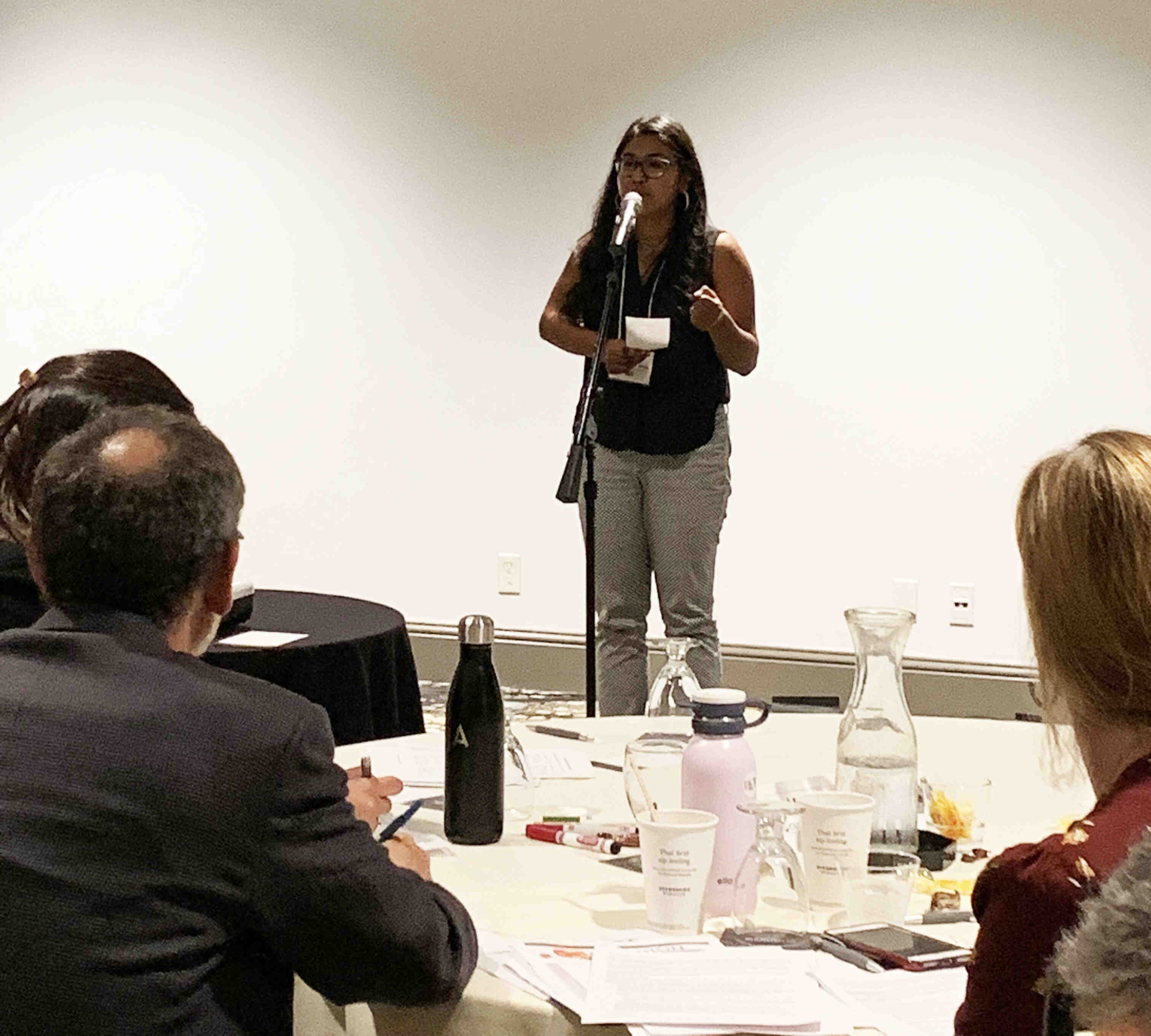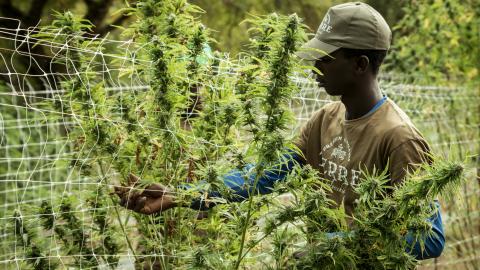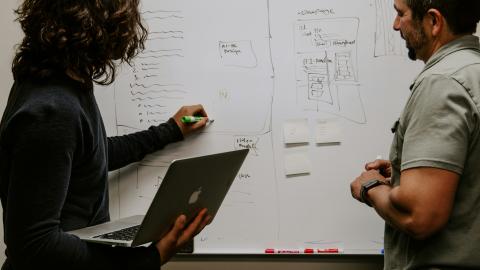
Erica Chavez, is pursuing a PhD degree in Health Services, with a research focus in occupational health as a Northwest Center for Occupational Health and Safety (ERC) Trainee. Her area of research interest is community-based participatory research, specifically addressing Latinx health disparities.
Erica grew up in Washington State, and completed a Bachelor’s in Biology and Public Health at the University of Washington, as well as an MPH in Sociomedical Sciences at Columbia University.
As a Northwest Center for Occupational Health and Safety trainee, Erica received funds from the center to attend the WestON conference in Denver, Colorado. The Northwest Center frequently funds student participation in conferences and outside educational opportunities, as a way for trainees to network, and learn about important occupational health and safety research happing nation-wide. WestON brings together occupational health epidemiologists and administrators from 19 western states, NIOSH and OSHA federal partners, NIOSH Education and Research Center (ERC) professionals, and NIOSH agricultural center professionals to address common workplace safety and health issues and to further develop collaborations and partnerships.
"I had a really great time and was able to network with researchers and organizations doing really meaningful occupational health work" says Erica, "I like to take any opportunity to attend occupational health events and conferences because I think it’s a great way to learn what researchers are doing across the U.S. but also make meaningful connections with others. What I especially liked about this meeting was that it was relatively small (~60 people) and they incorporated some small group exercises to aid in making connections and getting to know people."
One of the small group activities Erica participated in was developing 30-second elevator pitches. Erica's group's topic was convincing legislators and stakeholders to invest in an asthma surveillance program to track occupations and other environmental factors that might be putting certain workers more at risk.

elevator speech.
"It proved to be more difficult (but fun!) to do" says Erica, "After a few minutes of brainstorming, every group sent a representative to conduct their elevator speech in under 30 seconds. When I attend conferences, I understand what a privilege and benefit it is to get funding support, so I make it a point to step outside my comfort zone and ask questions or go up to folks to introduce myself. So, in this spirit, I volunteered for my group. Unfortunately, I went a few seconds over, but I learned a lot! I learned how to identify key messages that stakeholders care about, be concise, and also eliminate jargon that might make my message confusing. These are definitely lessons that I will take with me as I continue in my career especially when it comes to translating results in a meaningful way to various audiences."
"My two favorite sessions had to be the sessions on gender inequality in the workplace" Erica shares, "One of the presenters spoke about gender bias and ways to promote diversity and inclusion. As a woman of color in academia, this is a presentation that really resonated with me in many ways. I am a first-generation college student and the proud daughter of farmworkers; these are aspects of my identities that frame my way of thinking and my values on inclusion and equity. These are also aspects of my identity that sometimes conflict with the academic culture and can make it more isolating or daunting. I am slowly finding my place and my voice to create a more inclusive space for those around me and those coming after me, this is something that is really important to me and I think about a lot."
"The second presentation in this same session was called 'Beyond #MeToo: Low Wage Workers Leading the Way in Culture Change and Transformative Training.' The presenter, from UC Berkeley Labor Occupational Health Program, Alejandra Domenzain, spoke about a community-based development of training materials for sexual harassment for janitorial workers. This was super applicable to the work I do, because I currently help support the Janitor Workload Study at SHARP (Safety and Health Assessment and Research for Prevention) at Washington State Labor and Industries. I help conduct individual interviews on sexual harassment and workplace violence, so it was really inspiring seeing how LOHP was addressing sexual harassment prevention. They are working directly with workers to develop a training and then training workers so they can conduct the trainings for other workers. They are also pushing for state policy changes which was super exciting to see since I’m also interested in using research to inform policy changes for more equitable and just working conditions for workers in WA."




